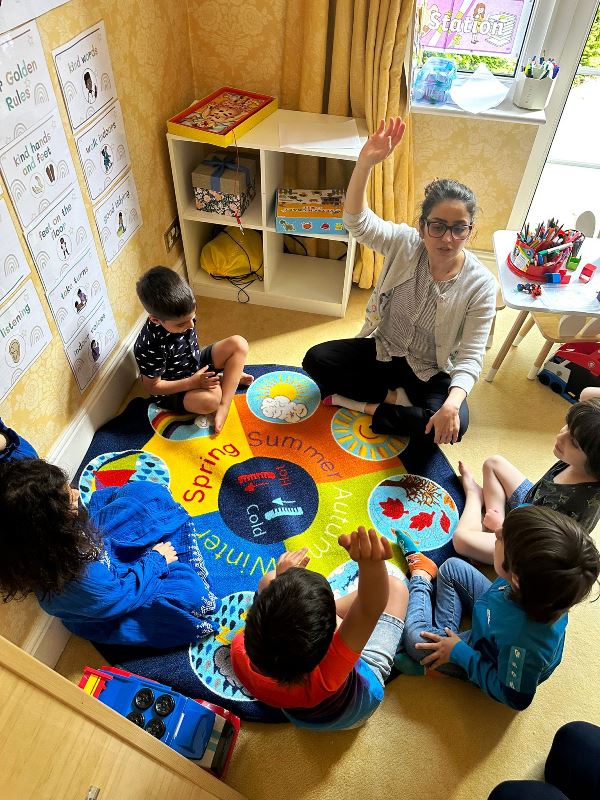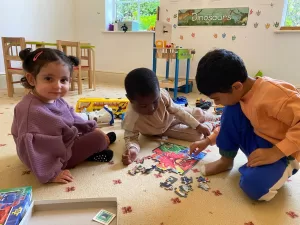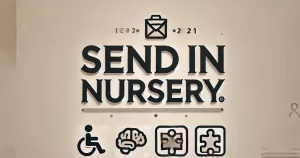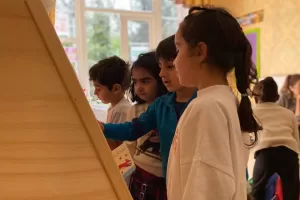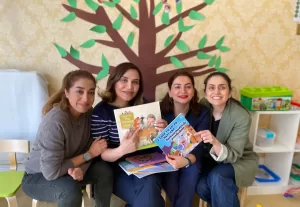Every parent longs to see their child blossom, and a crucial part of that growth is the development of speech and language skills. These abilities are the foundation for communication, learning, and social interaction. This article delves into the exciting journey of early language development, providing parents with a roadmap to understand their child’s progress and tips to nurture their communication abilities.
The Journey of Language Development: Understanding Early Childhood Milestones
Early language development is a gradual process, with children reaching various milestones at different stages. While every child progresses at their own pace, understanding the typical patterns can help you identify areas of strength and potential concerns. This article will explore these milestones and provide activities to support your child’s language growth.
The Vital Role of Speech and Language Development: Why It Matters
Strong speech and language skills are essential for a child’s overall development. They impact:
- Learning: Language is the key to understanding the world around us. Through communication, children learn new concepts, follow instructions, and build social connections.
- Social Interaction: Effective communication allows children to express themselves, build relationships, and participate in social activities.
- Academic Success: Language skills are crucial for reading comprehension, writing, and overall academic achievement.
Milestones Across Ages: Tracking Speech and Language Development
Here’s a breakdown of typical speech and language milestones, accompanied by fun activities to encourage their growth:
Babbling Beginnings: 2 Month Old Milestones
- Coos and vocalizes pleasure and displeasure sounds.
- Makes eye contact and smiles in response to voices.
Activities:
- Talk and sing to your baby often, using different tones and expressions.
- Respond to their coos and babbles, mimicking their sounds playfully.
Exploring Sounds: 4 to 6 Month Old Milestones
- Giggles and laughs.
- Responds to familiar voices and turns towards them.
- Babbles with consonant sounds like “ma” or “ba.”
Activities:
- Play peek-a-boo and other interactive games that encourage vocal responses.
- Read aloud with exaggerated expressions and sound effects.
First Words and Gestures: 7 Months to 12 Month Old Milestones
- Understands simple words like “no” and “bye-bye.”
- Uses gestures like pointing and waving.
- Babbles with strings of sounds like “mamamama” or “babababa.”
Activities:
- Label objects in your surroundings and encourage your child to imitate the sounds.
- Play simple games like “pat-a-cake” that involve repetitive words and actions.
Toddler Talk: 1 to 2 Year Old Milestones
- Says 2-3 words to label objects and people.
- Points to things they want or need.
- Follows simple instructions like “come here.”
Activities:
- Engage in pretend play, narrating your actions and encouraging your child to join in.
- Sing songs with simple lyrics and actions.
- Read books together, pointing to pictures and asking your child to name them.
Building Sentences: 2 to 3 Year Old Milestones
- Vocabulary of 50 words or more.
- Uses pronouns like “me” and “you.”
- Forms simple sentences (2-3 words).
Activities:
- Ask open-ended questions to encourage conversation and storytelling.
- Play games that involve sorting objects by color, shape, or size.
- Describe your daily activities and involve your child in conversations.
Mastering Language: 3 to 4 Year Old Milestones
- Uses more complex sentences (3-4 words).
- Asks “why” and “how” questions.
- Identifies colors and simple shapes.
Activities:
- Play rhyming games and sing songs with rhyming words.
- Create opportunities for dramatic play and storytelling.
- Read more complex books and discuss the plot and characters.
Articulating Thoughts: 4 to 5 Year Old Milestones
- Uses complete sentences with correct grammar.
- Tells stories with a beginning, middle, and end.
- Understands spatial concepts like “in” and “on.”
Activities
- Encourage your child to narrate their experiences and feelings.
- Play word games like charades or “I Spy.”
- Engage in conversations about current events or topics of their interest.
Refining Communication: 5 to 8 Year Old Milestones
- Uses complex sentences with conjunctions and prepositions.
- Understands abstract concepts like time and emotions.
- Engages in conversations fluently and follows complex instructions.
Activities:
- Discuss books, movies, or TV shows you watch together.
- Play board games that involve following rules and taking turns.
5 to 8 Year Old Milestones
- Understands figurative language like metaphors and similes.
- Uses humor and plays with words.
- Can summarize stories and retell events in chronological order.
Activities:
- Engage in conversation about current events, books, or movies.
- Play word games like Scrabble or crossword puzzles.
- Encourage creative writing and storytelling activities.
Nurturing Communication in Early Education: The EYFS Approach
The Early Years Foundation Stage (EYFS) framework in the UK emphasises the importance of communication and language development. The seven areas of learning within the EYFS all have strong links to language skills, including:
- Personal, Social and Emotional Development (PSED): Children learn to express their feelings and needs effectively, build relationships, and cooperate with others.
- Communication and Language: This area focuses specifically on developing spoken language, listening skills, and understanding written language.
- Physical Development: Children learn to follow instructions, communicate their needs, and use language to describe their physical experiences.
- Literacy: Language skills are crucial for reading comprehension, writing, and overall literacy development.
- Mathematics: Children use language to count, solve problems, and explain their mathematical thinking.
- Understanding the World: Language is essential for exploring the world around them, asking questions, and understanding new concepts.
- Expressive Arts and Design: Children use language to describe their creative work, share their ideas, and participate in imaginative play.
By providing a stimulating and language-rich environment, childcare settings can significantly support children’s communication and language development within the EYFS framework.
Identifying Speech Disorders: Signs and Symptoms to Watch For
While every child develops at their own pace, some signs may indicate potential speech or language delays. If you notice any of the following, it’s crucial to seek professional evaluation:
Impacts on Learning: Understanding the Effects of Speech and Language Disorders
Untreated speech and language disorders can have a negative impact on a child’s overall development, including:
- Difficulty learning to read and write.
- Challenges with social interaction and making friends.
- Frustration and behavioral problems.
- Lower academic achievement.
Seeking Support: What to Do If You Suspect a Problem
If you are concerned about your child’s speech and language development, don’t hesitate to:
- Talk to your child’s pediatrician or healthcare provider.
- Seek a referral to a speech-language pathologist (SLP) for a comprehensive evaluation.
- Discuss your concerns with your child’s childcare provider or teacher.
Early intervention is crucial for addressing speech and language delays and ensuring children reach their full potential.
Proven Strategies for Enhancing Language Development
Here are some additional parents tips to nurture your child’s language development at home:
- Talk and Sing: Engage in frequent conversations with your child, narrate your daily activities, and sing songs together.
- Read Aloud: Make reading a regular part of your routine, discuss the stories, and encourage your child to ask questions.
- Play Games: Utilize games that involve storytelling, rhyming, vocabulary building, and following instructions.
- Create a Language-Rich Environment: Surround your child with books, pictures, and objects that stimulate conversation and exploration.
- Listen Attentively: Give your child your undivided attention when they speak, show genuine interest, and respond thoughtfully.
- Encourage Pretend Play: Imaginative play allows children to practice using language in different contexts and express themselves creatively.
Collaborating for Success: Integrating Speech and Language Therapy in Childcare
High-quality childcare settings play a vital role in supporting children’s speech and language development. Here’s how:
Happy Chalet Knowing the great importance of speech and language development in the early years, in the coming years the child takes important measures to increase their skills from the first months until entering preschool. We strengthen children’s communication and verbal skills by creating group games and participating in playing games and curriculum by all children.
Also Read: The Benefits of Nursery Clubs in Early Years Education
Childcare providers can:
- Implement language-rich activities and routines throughout the day.
- Provide opportunities for children to interact with each other and engage in conversations.
- Model clear and correct pronunciation and grammar.
- Use visuals, gestures, and songs to enhance understanding.
- Collaborate with speech-language pathologists to provide targeted interventions for children with identified needs.
By working together, parents and childcare professionals can create an environment that fosters optimal speech and language development for all children, setting them on a path for success in communication and learning.

